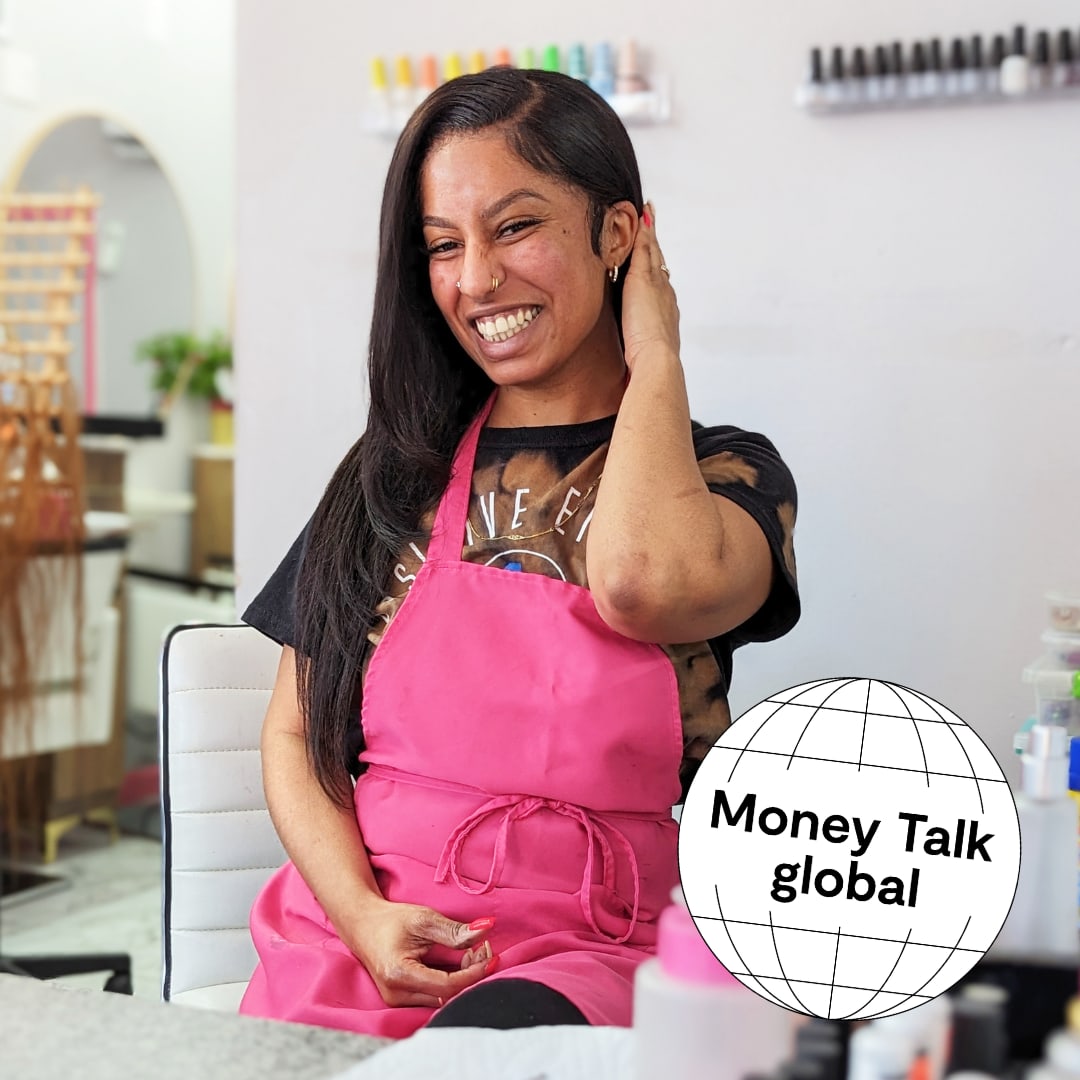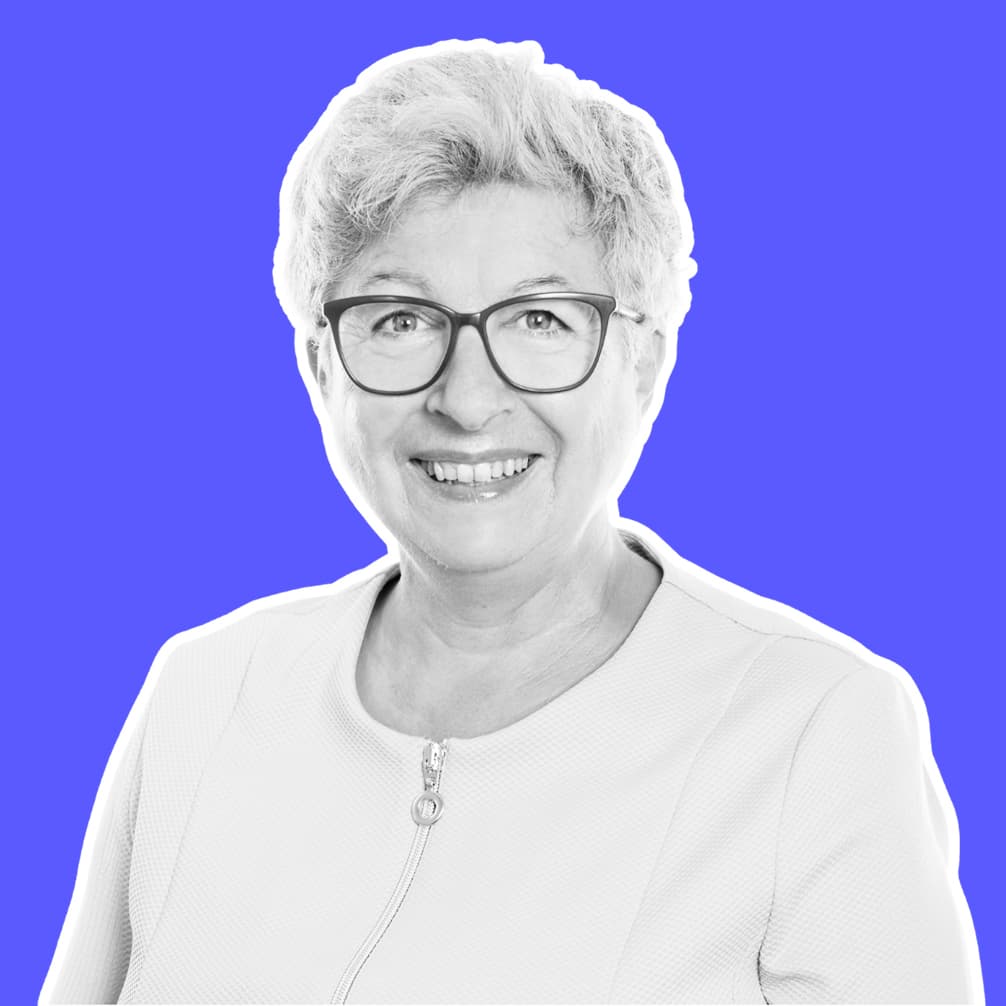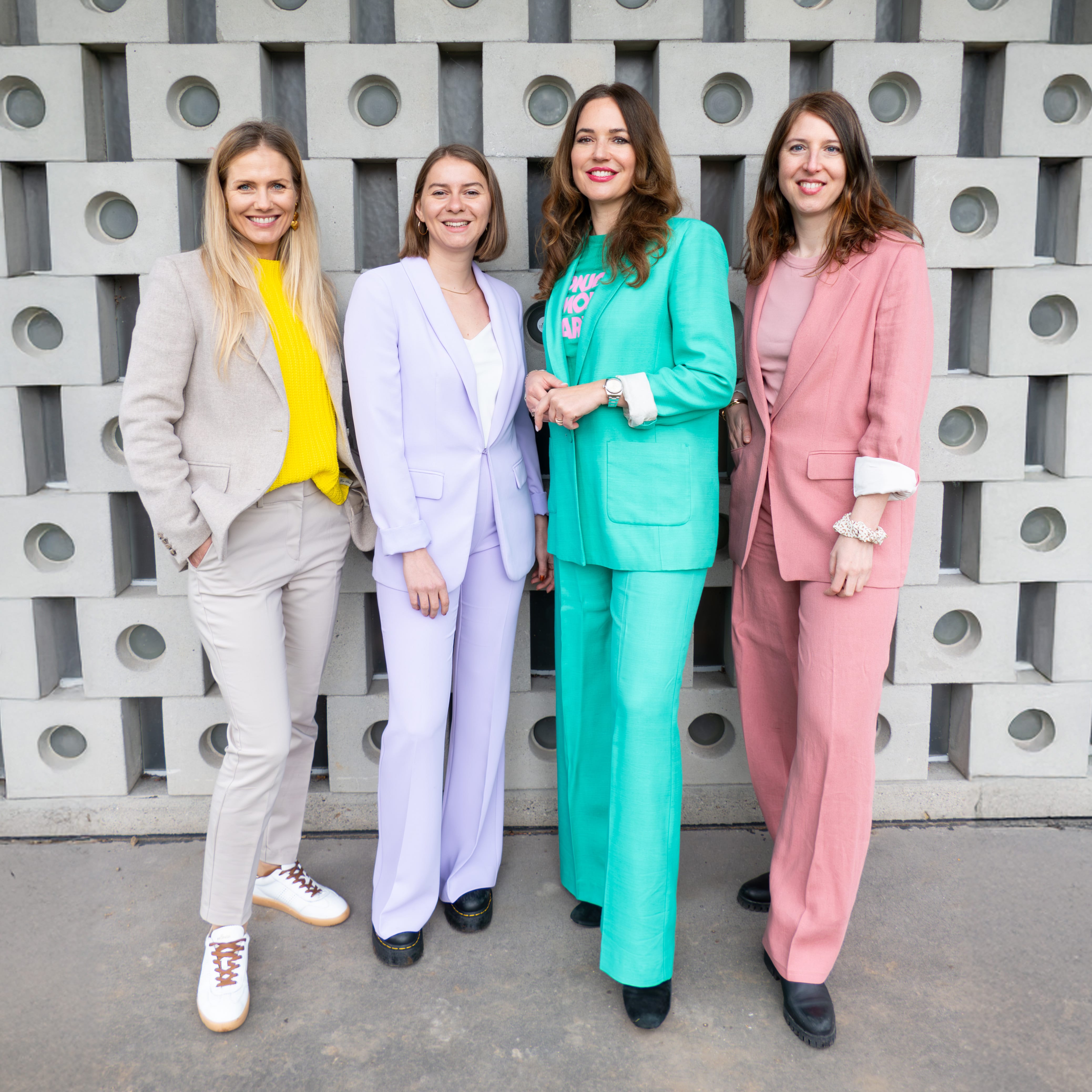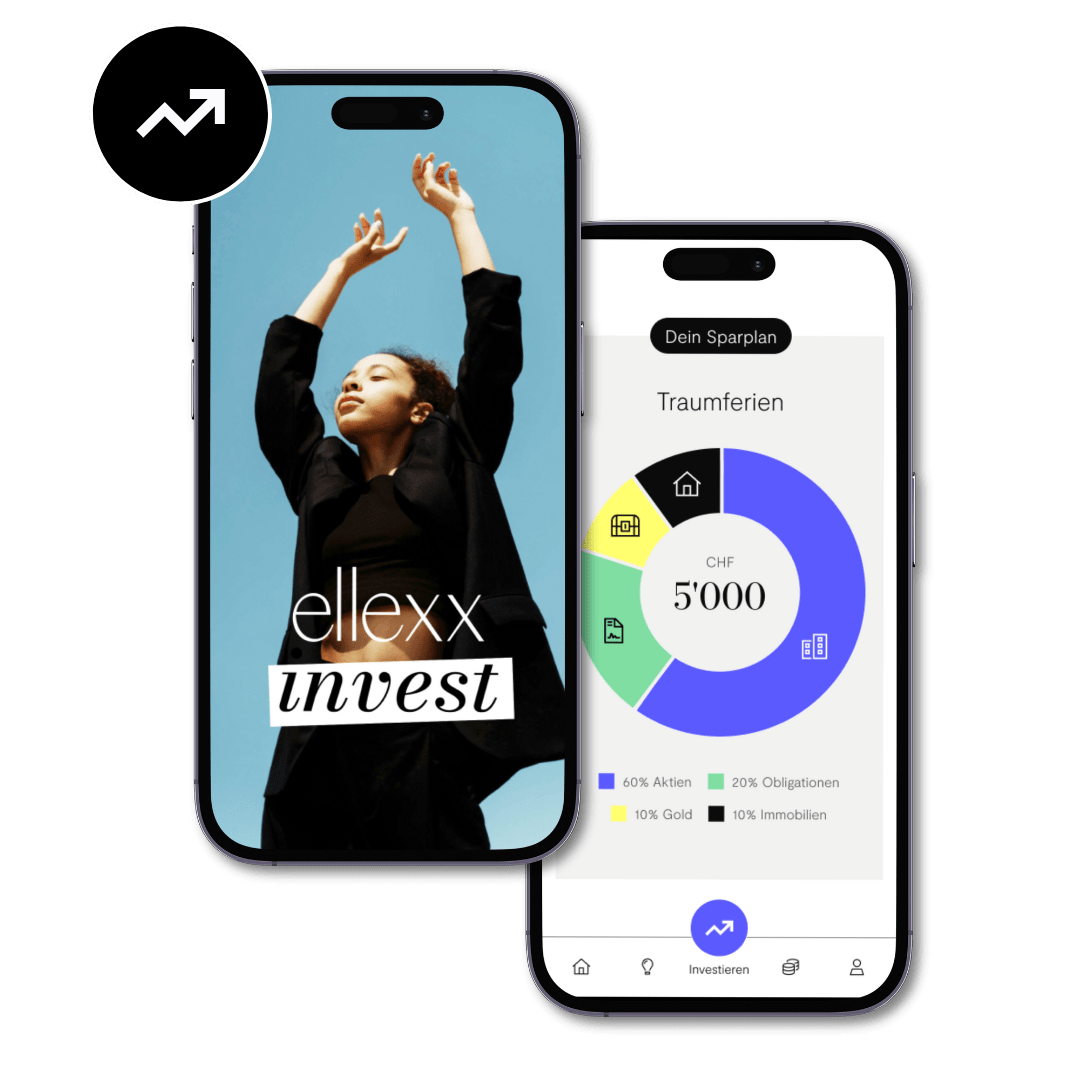Christina Stahl is the Co-Founder and CEO of Ameli Zurich, a Swiss brand of business handbags for women. Originally from Germany, Christina began her journey in Switzerland as a consultant before launching Ameli Zurich together with her husband in 2020. With her brand focused on female empowerment, we sit down to discuss one important aspect of that: money.
Let’s talk money. The change from a high-earning consultant to a bootstrapped entrepreneur. How was that transition?
I was lucky because it was smooth. I never got into a spending mode that you could have during consulting. I earned a lot of money but didn’t have time to spend it. So I didn’t get used to having a consulting “lifestyle”. When I left, I had savings and then I got a scholarship for my PhD., which combined helped me go into entrepreneurship without huge changes. I’ve also never been someone who defines themselves by what they spend. I feel secure as long as I can pay for things without thinking about it. And since I don’t need a lavish lifestyle, I don’t feel the smaller income as much. Being able to do what I like now is worth a lot more to me.
I’ve never been someone who defines themselves by what they spend.
You’re running a company AND doing a Ph.D.? Do you have any free time?
(laughs) Tough question. The lines between my free time and work time have blurred a lot. And it’s funny, but one of the things that I find really relaxing is actually coding the Ameli Zurich website, which I guess is work, but I like it.
Coding the website too? What are all the hats you wear at Ameli?
I founded Ameli with my husband and we split up our duties so that he does everything in the “back” like financial and operations, and I do everything in the “front” so everything that you see. That means communication, marketing, content creation, web design, bag design, putting our values into reality. We’re now a team of eight people. Five employees are working for me, so I also do a lot of coordination and management work.
The lines between my free time and work time have blurred a lot
So your husband does financial planning in the business?
Yes. And I’m very glad that I don’t have to do it (laughs). I studied fashion management and he studied finance and accounting so we each bring our best skills to the company.
But you are involved in financial decisions?
Of course. We’re still completely bootstrapped, we don’t have any external funding. We put our own money into the startup 50/50 and both have our shares in the company. So all financial decisions like hiring employees, making big handbag orders, or launching marketing campaigns, we make together.
And who does the financial planning at home?
My husband is Swabian, they are known for being tight with their money. As for me, I’m fine as long as I have financial security, I don’t count every penny. We still have our separate accounts and then a joint account for our expenses. I take care of my personal financials and he takes care of his. The salary we get from Ameli is used for expenses together and we both also have our “funny money”. So as an example, if we both earn 100% from Ameli then 60% goes to our overall spending, and then each of us gets 20% of “funny money”. It’s important to me that we have this split because I don’t want to ask my husband if I can buy a new pair of shoes I really like. I need my financial independence.
I don’t want to ask my husband if I can buy a new pair of shoes I really like. I need my financial independence.
How was money handled in your family?
My parents are a good example for me. They co-own a business together. Even though my mother grew up in a world where the husband earns more, she always told me to make sure that as a woman I should have my name on the contract. Whether it’s a business, or a house, any other asset - that I as a woman also have rights to it, not that everything is in the husband’s name and he gets all the financial security. My mother used to work in a bank before she joined the company of my father so she’s actually in charge of finances in the business and at home.
You said you don’t define yourself by money. But you began your career with consulting which is known for being a high-earning job. Were you saving up because you knew you’d be an entrepreneur one day?
I never wanted to become an entrepreneur, that’s a journey that just evolved. My main ambition is to learn. I’m driven by going beyond my comfort zone. I’m a nerd - I love excel, I love analytics, I love my coding. Consulting gave me the possibility to learn a lot in a very short period of time. Of course, the money was nice, but that wasn’t my driver.
But it did help to have this financial cushion to go into entrepreneurship right?
Of course. Consulting was necessary for me to have the skillset, but also to have the finances. I’m quite risk-averse and I need my financial security. My scholarship income and the money I earned in consulting helped me take the risk with Ameli. It also helped me feel secure knowing that with the experience and skillset I acquired, I can always go back to consulting or find other jobs. If something happens, I always have a fallback option. I remind myself of that whenever I feel insecure.
Even though my mother grew up in a world where the husband earns more, she always told me to make sure that as a woman I should have my name on the contract.
Does it happen often that you feel insecure?
Well, I remember once I forgot to pay off my German credit card, and then when I tried to use it didn’t work. That was a stressful moment I never had in consulting and it made me feel really unsteady. But then I realized I was fine.
So today you don’t worry about money?
(laughs) No, now I make sure to pay off my credit card so I avoid those moments.
Zurich is a rich city where people in the industry earn a lot. How does it feel to be a bootstrapped entrepreneur in a city of bankers?
As a student, I had no money. Then as a consultant, I all of a sudden had this ability to buy whatever I wanted, but after a while, I realized that even though I can, I don’t want to. I got to experience some of the luxurious things - five-star hotels, Michelin-star restaurants… I know how that lifestyle feels and I know I could have this life again if I really wanted to. But the costs of it, if you weigh what’s really valuable to you - I don’t need those fancy things. My flexibility and freedom are worth much more to me right now. It’s also about the people that surround me at this stage. We had a super simple dinner with close friends the other night, some wine, and had an amazing time. Don’t get me wrong, I like fancy things too, but it’s very nice to feel that you don’t have to be “bourgeois” every day.
There is a bit of this “bourgeois” pressure in Zurich isn’t there?
Of course. When you have peers that started at the same time as you who are now earning a lot more money, and you see the kind of vacations they can afford, it makes you stop and reflect. It’s very easy to be drawn into that comparison. But I remind myself how much I love what I do and that I wouldn’t be willing to give it up now. Actually, it’s not the money that makes me reflect the most, it’s the free weekends (laughs). I really miss having weekends off. As an entrepreneur, I have this internal drive to keep working. It’s hard to stop.
Don’t get me wrong, I like fancy things too, but it’s very nice to feel that you don’t have to be “bourgeois” every day.
You left your job and launched Ameli right at the beginning of the pandemic, how was that?
We started in June 2020 and at the time I thought the pandemic would be over in a couple of months. I even had my wedding planned for August 2020. In the end, it turned out fortunate for us, because we started slower than we thought and it allowed us to make little mistakes in the beginning without having huge demand or spotlight. The pandemic also inadvertently increased our target group. In the beginning, we focused only on business and consulting women, but now we target every woman with a laptop. The hybrid working approach is here to stay, and now no matter where you work, you likely have a laptop instead of only a stationary computer at the office. That means you need an Ameli bag!
You’ve said many times that Ameli is a reflection of your values and you want to create an impact with your brand. But it’s also a business and it has to earn money. How do you set those goals?
We have our production and operating costs and then we have the final price. In between, there is a profit margin that allows us to be profitable and pay the salaries of our employees. We set revenue goals at the beginning of the year and our goal now is to double what we did in 2021. We have a lean operation and try to cut costs wherever we can. For example, my husband is the photographer behind all the Ameli photos. At the same time, being profitable is not always the main focus. We reinvest our money into more products, more marketing, more growth.
What is your ambition? Do you want Ameli to be the #1 handbag company in Switzerland by 2025?
(laughs) No, I want Ameli to be the Rimowa of business handbags. Whenever I run at the airport, I want to see as many Amelis as there are Rimowas. That’s what I visualize.
Why do you think women talk so little about money?
It’s a good question. I’m surrounded by a lot of consultants and bankers so we do talk about money quite a bit. In my female friendship circle, I’ve also seen a shift where many of my friends are investing. But yes, I often feel that women get shy around money and feel that they lack expertise whereas men blurt out whatever they think. So I think we need to collectively be more confident.
I often feel that women get shy around money and feel that they lack expertise whereas men blurt out whatever they think.
Are you investing?
I did and now I’m mostly investing in Ameli.
And how is your pension planning?
I have the second and third pillars. I split my 3A strategy 50-50: I have one conservative account and one account where the bank manages it with a more risky strategy. And of course, Ameli is my future and part of my pension plan. My goal would be that the company is worth so much that when I retire I won’t need to rely on the government and can finance myself.
Go Ameli! Thank you for this honest talk, Christina.







